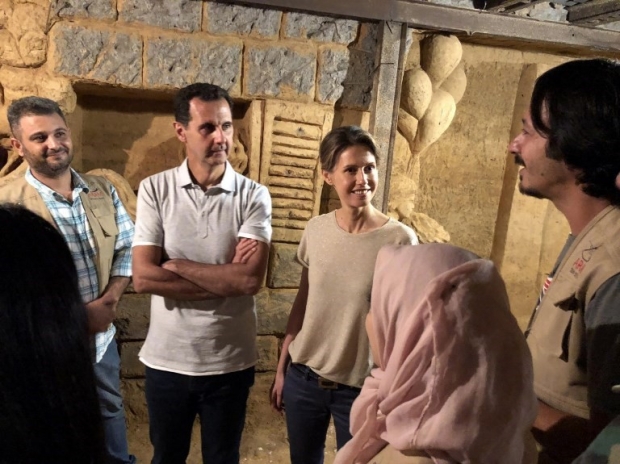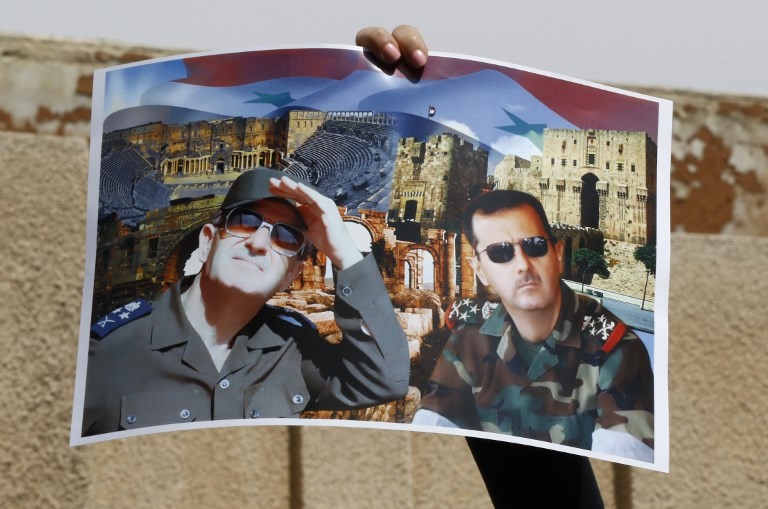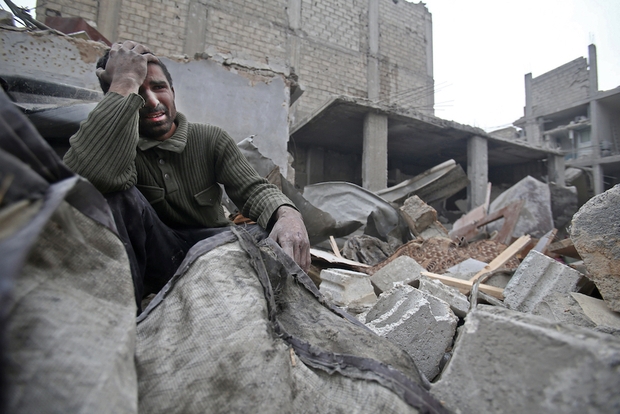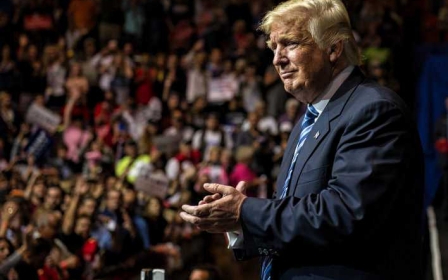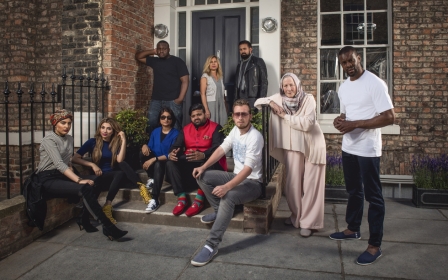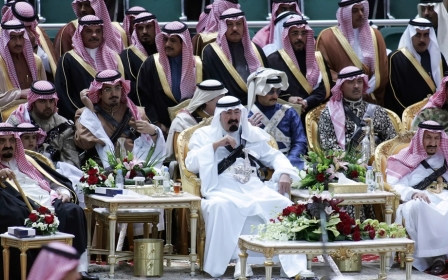To kill or not to kill: The BBC’s House of Assad tells Syria as Shakespeare
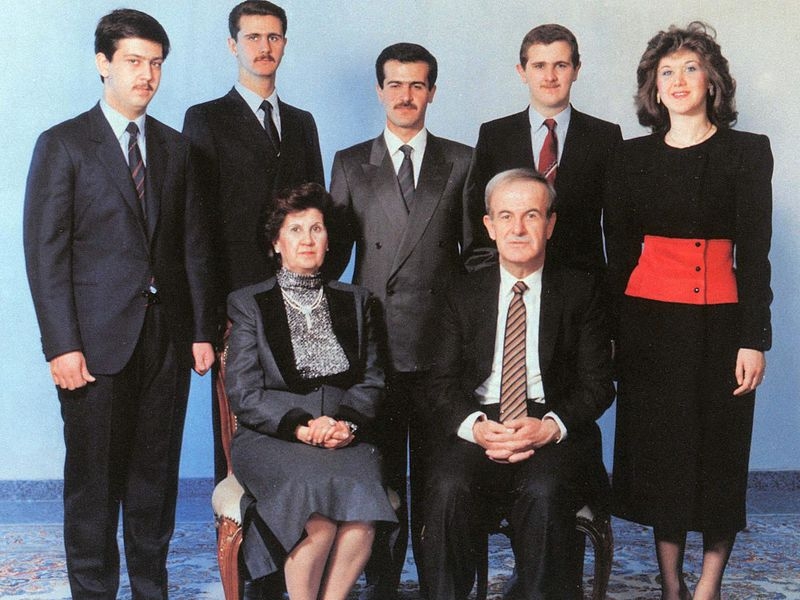
In the wake of the 2016 US presidential election, a London-based television production company called 72 Films made their first programme, a one-hour long documentary about Donald Trump’s family.
Meet the Trumps - which I worked on - was directed by Paul Berczeller, who had come up with the idea of telling the story of the new president through the story of his family, beginning with the arrival in America of Friedrich Trump, Donald’s grandfather, who came to the new world from Germany in 1885.
Meet the Assads
The story of the Trump family sits somewhere between Arthur Miller’s explorations of the dark soul of American capitalism and The Godfather’s saga of crime and power. At the heart of it is a relationship between a powerful father and a younger son. It’s a story 72 Films did very well out of – Meet the Trumps was broadcast on Channel 4 and was then spun out into a Netflix series.
It’s a trick the company has repeated again with the three-part series A Dangerous Dynasty: The House of Assad, which has been broadcast over the past few weeks on the BBC. You could say that this is compelling television, or you could say that as modern political history it makes for compelling television.
It tells the story of Syria’s last decades as Shakespeare, a grand family drama complete with a father-son relationship that would have captivated Freud. Bashar is Hamlet, the son trying to live up to the ghost of the father; or he’s Macbeth, propelled into power and darkness by a strong woman (in this case, both his mother and his wife, in different ways); or he’s Richard the Third, a tyrant gripping onto power; or he’s one of King Lear’s daughters, wondering what to do with the love and rage of the man who defines his life.
You could say that this is compelling television, or you could say that as modern political history it makes for compelling television
We begin in quieter places, at a hospital in Paddington in London. It’s 1993 and a British doctor is talking about his colleague Bashar, who comes to work “in a big black car every day”. When a patient reacts in wonder and excitement to this doctor, the truth comes out: "I haven’t told anyone, but my father is the president of Syria," an embarrassed Bashar tells his colleagues.
“It’s hard to place that junior doctor where he is in the context of the world now," his former colleague says, and the drama spools out from there, establishing a trajectory that will see Bashar morph from mild-mannered eye doctor with a fondness for Phil Collins into a cold-eyed dictator with a fondness for bombing his country’s citizens.
Reluctant dictator
Bassel is the oldest brother being prepared for succession, like Freddy Trump or Sonny Corleone. He is "licensed to do anything". He is charismatic. He has a rival horseman arrested for beating him at an event. His English tutor - who seems half in love with him - tells us about his penchant for riding around in sports cars full of weapons. “Are you scared?” Bassel asks him, laughing. Bassel is not scared.
Freddy Trump descended into alcoholism and died, his relationship with his father deeply troubled. Sonny Corleone died in a burst of gunfire. Bassel al-Assad dies in a car crash in 1994. Hafez’s first thought, on hearing the news, is to ask if it is a coup.
The Sykes-Picot agreement that saw France and Britain secretly carve up Ottoman Syria in 1916 is not even referenced, let alone examined
Quiet Bashar isn’t the obvious choice as heir but with brother Majd a “drug user”, sister Bushra – apparently her father’s favourite - a woman, brother Maher "completely crazy and evil" (the words of Conservative MP Brooks Newmark) and uncle Rifaat once guilty of trying to overthrow Hafez, there aren’t too many options and Bashar wins by default.
Footage shows the boy who would be king speaking at a memorial for Bassel, his notes flapping in the wind, his voice unconvincing, his father looking on unimpressed.
The patriarch’s drama is everywhere enhanced. Bashar is "given a crash course in how to be a military dictator". He is forced to toughen up, to not cover his mouth when he speaks. Hafez’s legendary cunning is discussed. His "hamburger trick" is explained: he offers another leader something (a hamburger), but when it comes down to it, he gives them nothing (just a bun).
The Sykes-Picot agreement that saw France and Britain secretly carve up Ottoman Syria in 1916 is not even referenced, let alone examined.
What we must know instead is that Bashar’s got daddy issues. He must be like his father, but does he, we are asked, want to be like his father? A family photo is shown again and again throughout the series.
Bashar al-Assad hasn’t been responsible for the killing of hundreds of thousands of people just because he had to live up to the expectations of his father and mother
It is very similar to the one used in the Trump programme, showing the whole family together, with the insurmountable pairing of father and mother at its centre. Contributors make comparisons to the mafia and to Shakespeare on more than one occasion. The soundtrack is often opera, enhancing the sense of high drama.
If the thrust of the series is that quiet Bashar had to take on the being of hard Hafez, variations on that interpretation are available.
Western-friendly PR and repressive tactics
The veteran Lebanese political leader Walid Jumblatt, himself part of a political dynasty far older than the Assads, is one of the treats of the show. Jumblatt, looking like a stately Arctic bird, describes meeting Hafez after his father had been killed on the orders of the Syrian leader. “Believe it or not," Jumblatt says, “we started a kind of friendship.”
Hafez was “much more intelligent and subtle” than Bashar, the Druze leader says. When you first meet people, you sometimes get an instant sense of whether you like them or not. “We disliked each other,” Jumblatt says of his first meeting with Bashar. "He’s different from the father."
The tension is between Western-friendly PR, as represented by Asma, and the repressive tactics deployed by Hafez. In the end, the Assads opt for a mix of the two
Bashar also has mummy issues. Anisa Makhlouf, the matriarch, Bashar’s mother, is described as "very tough, manipulative". She is an old-fashioned Lady Macbeth, intent on crushing opposition and keeping her husband’s legacy intact. By contrast Asma, Bashar’s British-born and raised wife, a former investment banker dubbed "a rose in the desert" by Vogue, is the "beautiful, British, liberal" face of modern Syria.
The tension is between Western-friendly PR, as represented by Asma, and the repressive tactics deployed by Hafez. In the end, the Assads opt for a mix of the two with Asma the beautiful face behind which the violent regime hides.
The series is captivated by her but it exposes the brutal hypocrisy of her and her husband. A piece of archive footage is returned to again and again. It is Asma al-Assad, telling a television interviewer that she knows her husband is a man “that cares”, that she knows who he is as a husband and a father.
The brutal hypocrisy
Footage of bombings and protests are played against it and a former Syrian intelligence officer tells us that Bashar cannot claim to have clean hands: he knows everything.
In the end, the dramatic allure of Bashar’s daddy issues clouds the issue somewhat. He hasn’t been responsible for the killing of hundreds of thousands of people just because he had to live up to the expectations of his father and mother. Certainly no-one would envy Bashar al-Assad, but the nightmare Syria finds itself in goes so far beyond the close, internal dynamics of a Shakespearean tragedy.
It is a nightmare that has proven very difficult to report on and far harder to live through. It is one that reaches back far into the past, taking in issues of colonialism, religion, power and democracy. It is one drowning in information and misinformation, in violence and exhaustion.
Part of the story, certainly, is located within the palace walls, between the members of the Assad family, but there is the relationship between a father and his son and then there is the relationship between a nation and its region, a nation and its history, a nation and the world. All the while, the powerless suffer.
At the end of the series, a Syrian doctor shows us a drawing by a child from Aleppo. In it, the dead smile and the living cry. And so we close with the suffering of the Syrian people.
That’s as it should be. This may be a drama. It is also real life.
- Oscar Rickett is a journalist who has written and worked for ITN, VICE, The Guardian, BBC, Africa Confidential and various others.
The views expressed in this article belong to the author and do not necessarily reflect the editorial policy of Middle East Eye.
Image: The al-Assad family circa 1993. Front: Hafez al-Assad and his wife, Anisa Makhlouf. Rear, left to right: Maher, Bashar, Bassel, Majd, and Bushra al-Assad (Wikicommons)
Stay informed with MEE's newsletters
Sign up to get the latest alerts, insights and analysis, starting with Turkey Unpacked
Middle East Eye delivers independent and unrivalled coverage and analysis of the Middle East, North Africa and beyond. To learn more about republishing this content and the associated fees, please fill out this form. More about MEE can be found here.



